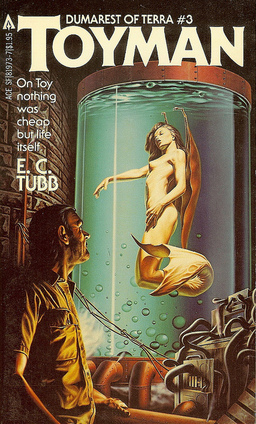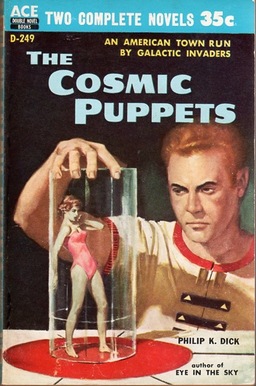What Old Futures Can Teach Us About What SF and SciFi is Really For

So, last week I talked about how old Science Fiction and most media SciFi fails to portray realistic futures. They often do well at predicting specific technical advances, for example speech recognition, but underestimate the way humans will exploit any technology to its limits and use it in conjunction with other technologies.
What’s interesting is that (almost) nobody cares.
For example, I’m reading EC Tubb’s Dumarest books. The technology is wildly inconsistent. Conspirators have devices to block eavesdropping, electronic and human, but use landlines without worrying about phone taps.
Did I mention people use landlines?
In EC Tubb’s imagined future, it’s possible to steal a flyer without somebody tracing it through an ID chip, and without it being spotted on radar or by satellite as you cross the sea. Security means men with guns.
And I don’t care!




 It’s been a while since I posted anything here at Black Gate. There’s no one reason; a number of things have kept me busy or occupied, most recently a persistent head cold and ear infection. I mention this because being under the weather has indirectly to do with the following post. Firstly, being sick led me to watch some TV shows which I now want to write a bit about. Secondly, my mental state shaped the way I thought about what I experienced; I can only hope now to capture the sense of coherence I had then. This essay will be more shapeless than usual, I’m afraid, an attempt to explain the connections that drifted through my mind between Alan Moore, Doc Savage, and Scooby Doo, among others.
It’s been a while since I posted anything here at Black Gate. There’s no one reason; a number of things have kept me busy or occupied, most recently a persistent head cold and ear infection. I mention this because being under the weather has indirectly to do with the following post. Firstly, being sick led me to watch some TV shows which I now want to write a bit about. Secondly, my mental state shaped the way I thought about what I experienced; I can only hope now to capture the sense of coherence I had then. This essay will be more shapeless than usual, I’m afraid, an attempt to explain the connections that drifted through my mind between Alan Moore, Doc Savage, and Scooby Doo, among others.


